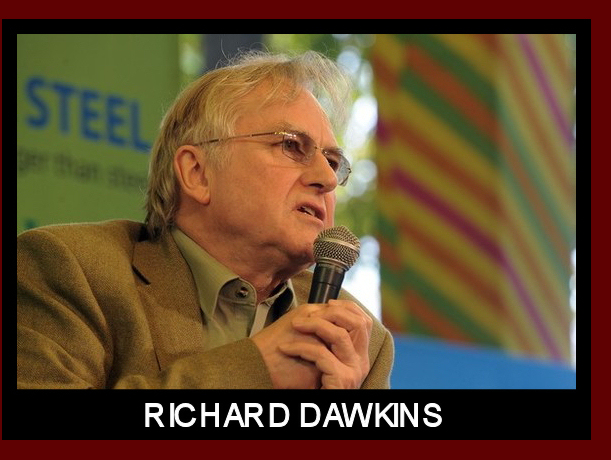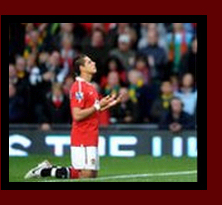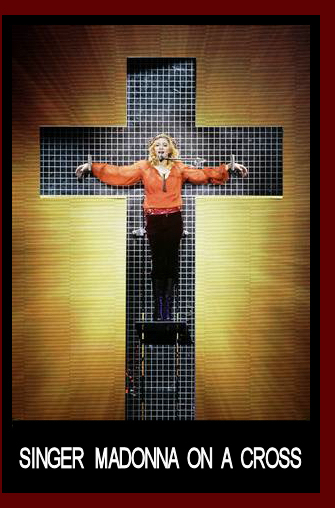|
 The
debate over Secularism v cultural Christianity is
raging. But just how much of British culture is
inspired by religion. The
debate over Secularism v cultural Christianity is
raging. But just how much of British culture is
inspired by religion.
"On
the Origin of Species, uh, with… oh God," as
Richard Dawkins said on BBC Radio Four's Today
programme when challenged by the Rev Giles Fraser to
give the full title of Charles Darwin's famous book.
That
the unofficial pope of Western atheism should
expostulate about God in moments when life is a
struggle does not of course mean that deep down
atheists believe in God after all. But it does
illustrate how deeply ingrained religion is in the
UK's culture.
Britain
is in many ways a secular state, and traditional
beliefs and practices have collapsed, but perhaps the
UK's national culture is still more religious than we
often notice. Trying to take all the religion out of
it would be not so much like taking the raisins out of
a fruitcake as like taking the chocolate out of a
chocolate cake.
So
here are some of the places in British society where
Christian heritage can easily be uncovered.
CALENDAR
The
academic year revolves around Christmas and Easter holidays, while in the more traditional
universities the terms are religious too.
Easter holidays, while in the more traditional
universities the terms are religious too.
Oxford,
for example has Michaelmas, Hilary and Trinity,
marking the feast days of the Archangel Michael, St
Hilary of Poitiers and the metaphysical constitution
of God. St Andrews University has two semesters,
Martinmas and Candlemas. Durham has Michaelmas,
Epiphany and Easter.
In
fact, most annual celebrations are religious in their
origins, though less obvious about it.
Valentine's
Day is named after a saint.
 Valentine's
Day is a saint's day. Pancake Day, or Shrove Tuesday
to the traditionalists, is a last hurrah before the
austerity of a pancake-free Lent. Halloween is a last
hurrah of the powers of evil before their routine
drubbing on All Hallows' Day. Valentine's
Day is a saint's day. Pancake Day, or Shrove Tuesday
to the traditionalists, is a last hurrah before the
austerity of a pancake-free Lent. Halloween is a last
hurrah of the powers of evil before their routine
drubbing on All Hallows' Day.
Bonfire
Night marks the burning in effigy of the Catholic
threat to national security. Mother's Day marks the
halfway point of Lent, and one theory of its origin is
that it was marked by visiting the region's
"mother church" or cathedral.
New
Year's Day has no very religious origin, and so can be
celebrated by the most zealous secularist - but
perhaps not with new year resolutions, which are a
Puritan tradition of spiritual improvement.
The
shape of our week is religious - the seven-day cycle
with a day of rest being one of Judaism's
contributions to our society. Days and months are
named after (pagan) gods, while our years are numbered
after the birth of Christ. The very notion of holidays
perpetuates the age-old observation of "holy
days".
And
the fact that the financial year obstinately holds off
until April marks the fact that Christ was born on 25
December, and therefore conceived on 25 March, the
Feast of the Annunciation. This was New Year's Day
until the 18th Century, and the tax year got separated
from it when we jumped 11 days switching to the
Gregorian calendar in 1752.
LANGUAGE
Our
language is thick with God and matters arising. Most
swearwords, along with milder exclamations, if they
are not related to bodily functions or organs, are
religious.
Many
are explicit: OMG, for Christ's sake, what the hell,
good heavens, damn. Others are under cover:
"Heck" is hell, "Dickens" is the
devil, "goodness" is God, "blimey"
is "God blind me", "strewth" is
God's truth.
 Richard
Dawkins' surname ultimately derives from King David. Richard
Dawkins' surname ultimately derives from King David.
The
linguist David Crystal found 257 phrases in everyday
English that come from the King James Bible. Whether
you "give up the ghost" or "go from
strength to strength" you're reciting scripture -
and if you complain that I'm putting words in your
mouth, you're doing it again. It's just a cross you'll
have to bear.
Other
phrases are not Biblical but obviously religious if
you listen to what you're saying - singing from the
same hymn sheet, preaching to the converted, pop idol,
godsend, making a sacrifice, hell to pay.
Traditional
British Christian names - well, the clue's in the
name, isn't it? Of the notable atheists dubbed the
Four Horsemen of the Apocalypse, Sam Harris and Daniel
C Dennett have Biblical first names, and Christopher
Hitchens was named after a saint. Only Richard Dawkins
has a secular given name, but atones for it by his
surname, which is ultimately inherited from King
David, the psalmist and giant killer.
SPORT
Football
may be a religion in itself, with its worship,
rituals, vestments and tribalism, but it still has
room for  Christian traditions. Witness how players cross
themselves and point heavenwards, or put their hands
together and pray to the referee to avoid being booked
or sent off.
Christian traditions. Witness how players cross
themselves and point heavenwards, or put their hands
together and pray to the referee to avoid being booked
or sent off.
Meanwhile,
the fans sing hymn tunes - occasionally with the
original words such as Abide With Me at cup finals.
More often they are adapted, such as
"three-nil" to the tune of Amazing Grace,
"We are the famous CFC" to the tune of The
Lord of the Dance, or "You're not singing any
more" to the tune of Bread of Heaven.
FOOD AND DRINK
There
are brands and products that take their name from
religious sources, whether for historical reasons or
just because it sounds good. So there are Quaker Oats
and Cathedral City, Angel Delight, devil's food cake
and hot cross buns. There are Saints Ivel, Agur and
Austell.
Upholding
the traditional connections between holy orders and
alcohol are Bishop's Finger, Blue Nun and Abbot Ale.
And the biggest fish sales of the year are still on
Good Friday.
FOLKLORE
Certain
superstitions are supposed to have religious roots. In
medieval lore, Satan loved to take the form of a black
cat and hated salt, a symbol of purity, hence the
unluckiness of seeing the one and the remedy of
throwing the other over one's shoulder.
Fear
of the number 13 may have stemmed from Judas being the
13th member of the Last Supper. And we still bless
people when they sneeze.
NATIONAL IDENTITY
 St
Andrew's Day is a public holiday in Scotland, as is St
Patrick's Day in Ireland, though attempts to do the
same for David and George have not so far succeeded.
Their crosses mean that British flags commemorate
three Christian martyrdoms, while the British national
anthem is a prayer that mentions God about as often as
humanly possible. St
Andrew's Day is a public holiday in Scotland, as is St
Patrick's Day in Ireland, though attempts to do the
same for David and George have not so far succeeded.
Their crosses mean that British flags commemorate
three Christian martyrdoms, while the British national
anthem is a prayer that mentions God about as often as
humanly possible.
MUSIC
While
Masses, oratorios and sacred cantatas have an
important place in classical music, the pop charts may
 not seem a welcoming place for theology.
not seem a welcoming place for theology.
In
fact, in one way or another, religion is a recurrent
theme for many of the most respected and/or
best-selling music acts. Witness everything from the
gospel of Elvis and Mariah Carey to the hymns of Bob
Marley and Van Morrison.
Indeed
the influence of religion can be found as much in the
controversies of Madonna or the Rolling Stones, as it
can in the spirituality of artists as diverse as Bob
Dylan, Kanye West, Prince and U2.
Even
X Factor has had its religion-tinged phase thanks to
Leonard Cohen's Hallelujah. And Andrew Lloyd Webber is
looking for Jesus in his reality casting show
Superstar. He will doubtless find him.

|
![]()